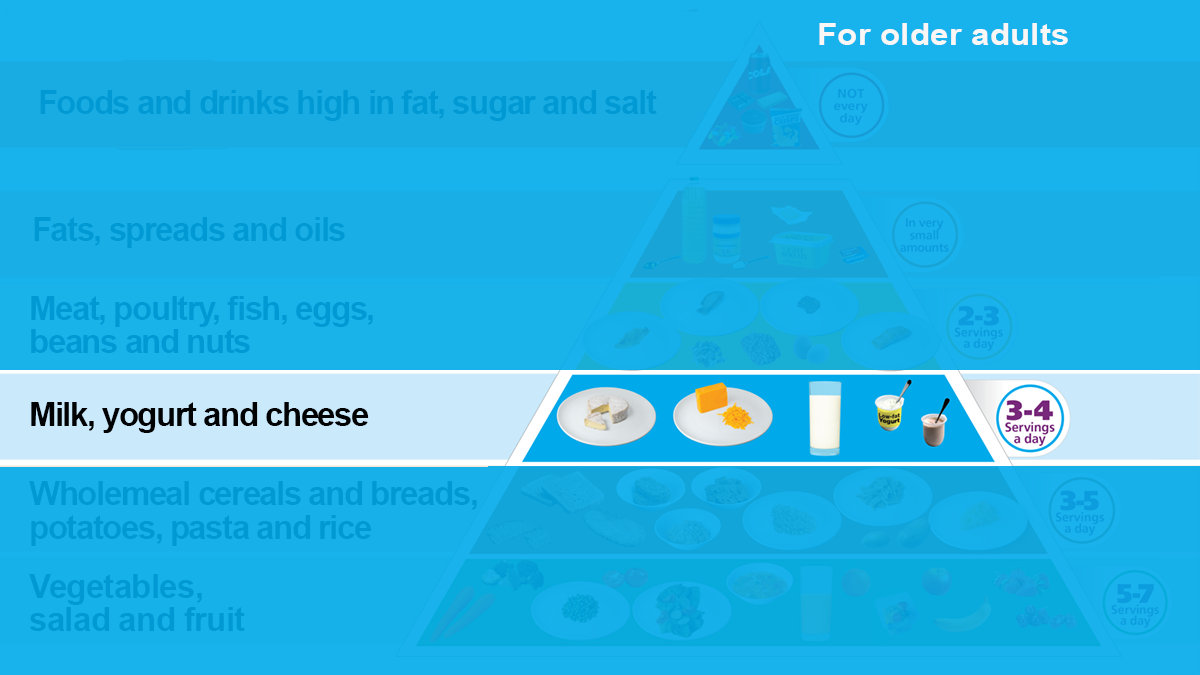Milk, yogurt and cheese

Dairy foods are important sources of protein, calcium and vitamins A, D and B.
Protein helps to maintain strong muscles. Calcium is needed to maintain strong bones and teeth. Vitamin D is needed to help absorb calcium from foods.
Tips
- Choose reduced-fat or low-fat varieties. These are lower in fat but just as rich in nutrients.
- Look for fortified milk and yogurts, they contain a range of added vitamins, minerals and proteins that can help you meet your nutrition needs.
- Adding milk to sauces or eating milk puddings can help you increase your calcium intake.
- If you use a plant-based drink instead of milk choose an unsweetened, fortified soya drink with added calcium. Other plant-based drinks can be low in calcium and protein, so check the label and choose those that are fortified.
How much should I eat?
Aim to have three to four servings from this shelf every day.
What is a serving?
- 1 glass (200ml) milk or fortified milk
- 1 glass (200ml) unsweetened soya drink fortified with calcium
- 1 bottle (200ml) yogurt drink
- 2 thumbs (25g) hard or semi-hard cheese such as cheddar or edam
- 2 thumbs (25g) soft cheese such as brie or camembert
- 1 carton (125g) yogurt
Use the width and depth of your two thumbs to as a guide serving size for cheese
Download: Milk, yogurt and cheese fact sheet

